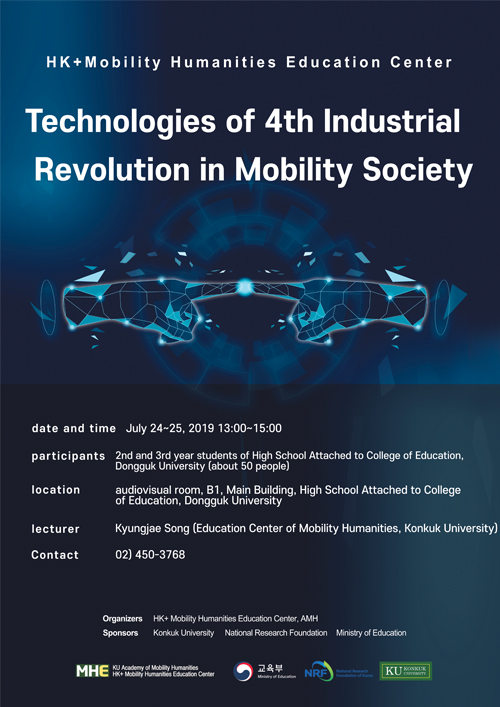The various forms of mobility in modern society, through advancements in mobile technology and transportation such as migration, immigration, the movement of people and goods, computers and the flow of information and capital, are widespread phenomena. A mobility society is characterised by expanding spatial boundaries based on mobility.
If a migration to cities since the Industrial Revolution is simply a shift in residential locations, mobility in the information age encompasses broader social, political, economic, and cultural changes. Beyond philosophical thinking about how human life will change shortly, we will confront practical challenges. With the emergence of the 4.0 industry, led by the internet, robots, artificial intelligence, big data, blockchain, Internet of Things, 3D painting, nanotechnology, and other technologies, society is undergoing rapid changes. The convergence of scientific and technological advancements with existing industries and services transforms human life in new ways.


